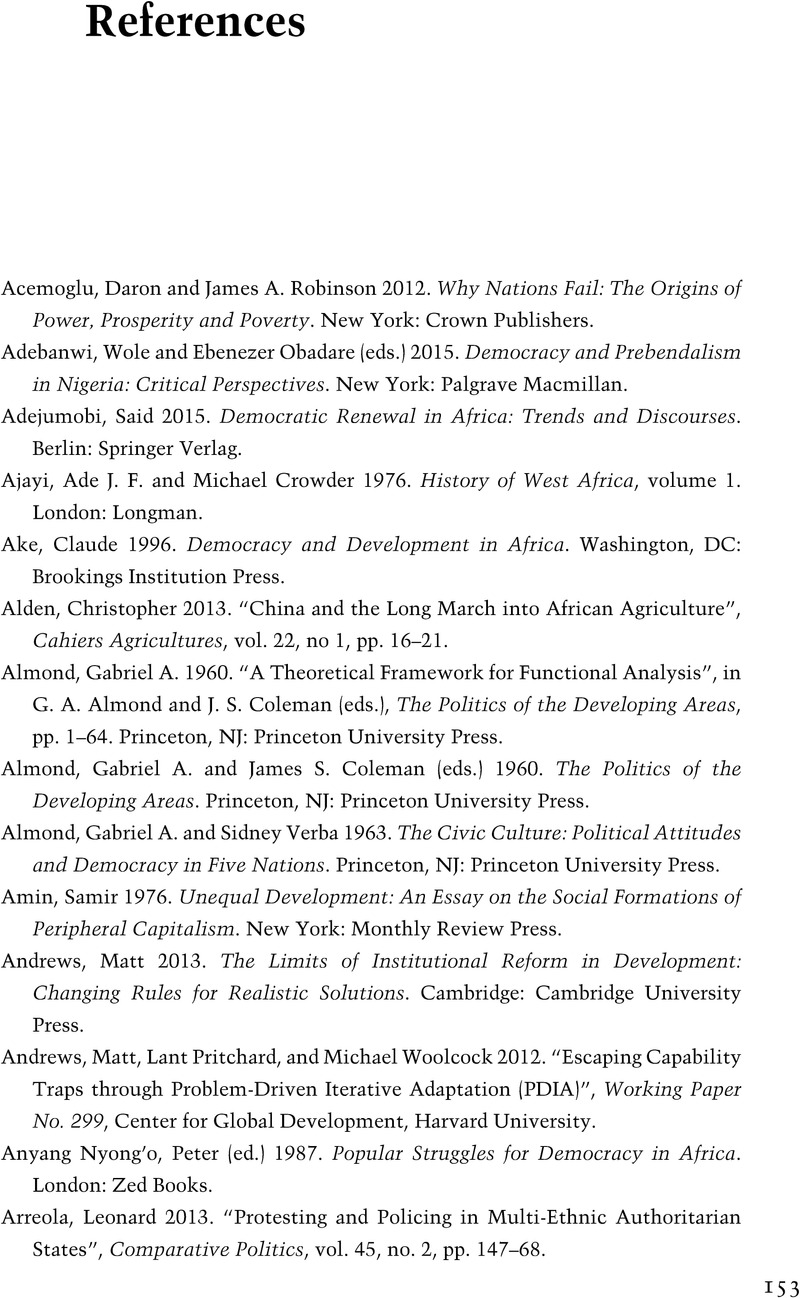Book contents
- Theorizing in Comparative Politics
- Theorizing in Comparative Politics
- Copyright page
- Contents
- Figures
- Tables
- Introduction
- 1 Three Theoretical Spurts
- 2 How History Matters
- 3 Relevance of Social Formations
- 4 Nation-States and State-Nations
- 5 Regimes and Institutions
- 6 Parties and Ideology
- 7 Culture and the Public Sphere
- 8 Four Neighbours, Four Regimes
- 9 What Africa Teaches Us
- References
- Index
- References
References
Published online by Cambridge University Press: 04 January 2024
- Theorizing in Comparative Politics
- Theorizing in Comparative Politics
- Copyright page
- Contents
- Figures
- Tables
- Introduction
- 1 Three Theoretical Spurts
- 2 How History Matters
- 3 Relevance of Social Formations
- 4 Nation-States and State-Nations
- 5 Regimes and Institutions
- 6 Parties and Ideology
- 7 Culture and the Public Sphere
- 8 Four Neighbours, Four Regimes
- 9 What Africa Teaches Us
- References
- Index
- References
Summary

- Type
- Chapter
- Information
- Theorizing in Comparative PoliticsDemocratization in Africa, pp. 153 - 171Publisher: Cambridge University PressPrint publication year: 2024



